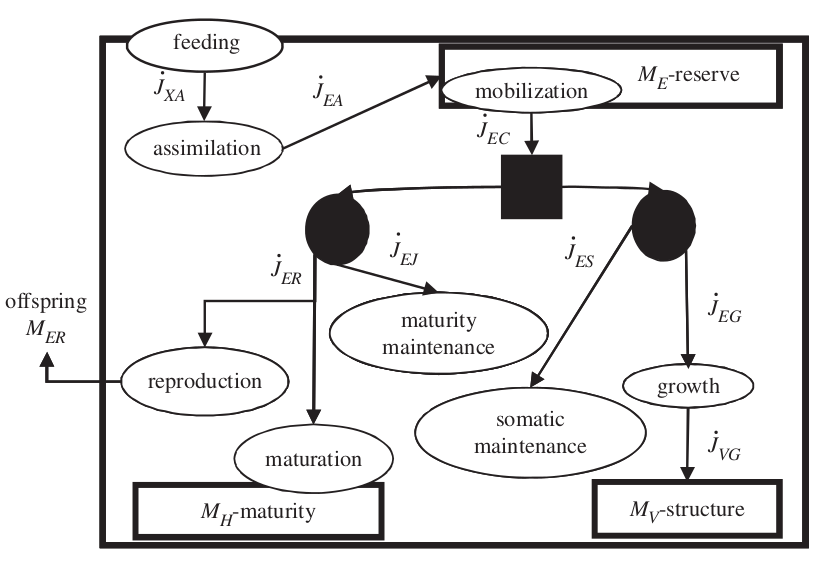Dynamic Energy Budgets
NOTE: currently not used.
Persefone's nature module uses Kooijman's Dynamic Energy Budget theory to model energy flows within individuals.

The standard model of the Dynamic Energy Budget theory. (Fig. 1 from Sousa et al. (2010).)
Sousa et al. (2010). Dynamic energy budget theory restores coherence in biology. Philosophical Transactions of the Royal Society B: Biological Sciences, 365(1557), 3413–3428.
Kooijman, S. A. L. M. (2009). Dynamic energy and mass budgets in biological systems (3rd ed). Cambridge University Press.
Sibly et al. (2013). Representing the acquisition and use of energy by individuals in agent-based models of animal populations. Methods in Ecology and Evolution, 4(2), 151–161.